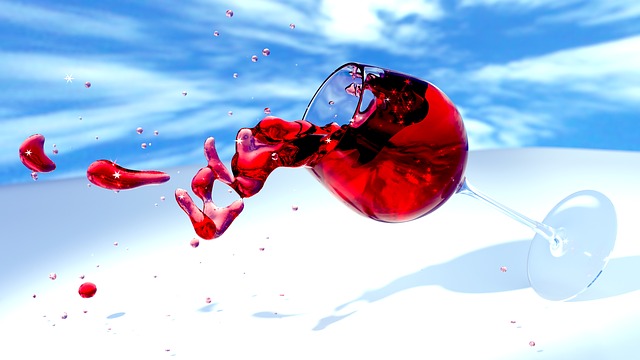“Wine makes the heart cheerful”. Have you ever heard anyone express those sentiments? As transparent as that is, scientists have made striking negative discoveries about the use of wine and alcoholic beverages. However, these ‘findings’ are rarely uttered, let alone whispered. There are two-folds to the story and today… I’ll tell it all.
Several statistical studies have exhibited that the consumption of wine – even a few glasses – has the capacity to minify heart muscle arteriectasis (myocardial infarction) in males 50 years and above. On the other hand, wine and alcoholic beverages have contributed to hypertension, inflammation of the lining of the stomach, reflux of the oesophagus, disease of the liver and various types of cancers, among other health risks.
Positive Aspects of Ingesting Wine and Alcoholic Beverages
Fact: Women who drink alcoholic beverages and wine, are more susceptible or vulnerable to breast cancer and various other disorders of the body.
- Easy on the heart
Consuming approximately 100 and 200 ml (1/2-1 cup) of red wine on a daily basis has a cheerful effect on the heart. Please note that this does not involve the consumption of white wine. Ingesting red wine reduces the risk of a heart attack in men 50 and over according to documentation. (The CORALI Study. EUR. Heart. J.,314: 18-23 (1997)

Red wine is said to be beneficial because of two components within its contents.
– Ethyl alcohol
– Phenolic flavonoids
- Stimulates Digestion
While alcohol is able to act as an irritant to a wound on the skin – whether large or small – it has the same effect on the digestive system. It creates irritation of the mucosa within the digestive tract, which then causes the stomach to secrete more juice in order to counteract the annoyances.
Negative Aspects of Ingesting Wine and Alcoholic Beverages
People are cognizant that large consumptions of alcoholic beverages is hazardous to the health, or even lethal. However, in some cases, studies have revealed unfavourable results from the moderate or small consumption of alcohol. These unfavourable results include:
- Breast Cancer: In comparison to women who refuse to ingest alcohol, studies reveal that those who do are at a greater risk of being diagnosed with cancer of the breast.
– The University of Milan (Italy) has verified that women who drink 24.3 g of alcohol (one-fourth liter or 1 cup of wine, approximately) or more a day, are at risk of breast cancer than non-drinkers.
– A study in the Unites States involving 89,539 women showed that those who consumed 15 g of alcohol a day (about 150ml of wine) are at 2.5 times higher risk of breast cancer than those who do not drink.
- Cerebral Haemorrhage
- Cancer in General
- Colon Cancer
- Stomach Cancer: The link between cancer of the stomach and those who drink is at an all-time peak. This information was proven when a The General Director of Health in Portugal carried out a research on cancer of the oesophagus and stomach.
- Reflux of the Esophagus (Oesophagus): This risk has been confirmed through a study by the Clinic Hospital of Barcelona.
- Alterations of the Foetus (Fetus): Women who are pregnant and are found in the company of alcohol (drinking 400 ml or 2 glasses) a day, are vulnerable to conditions such as immature placentas, low birth weight babies, and premature birth. Greater consumption of alcohol in women could lead to fetal alcohol syndrome.
- The fracturing of the Bones: Women who consume at least 1 large glass are at “2.33 times greater risk of hip fracture than those who do not drink”.
In addition to the aforementioned health risks, alcohol drinkers are also vulnerable to gout, cardiomyopathy, cerebral atrophy, and cirrhosis.
Buying and Consumption of Wine
Though alcohol has some positive effects on the heart, from a public health perspective, it is insignificant in comparison to its drawbacks. Therefore, whenever alcohol is being consumed, users should use discretion in doing so. If for any reason wine is going to be considered, the consumer should do so on special occasions. These could be done on wedding occasions, Anniversaries and other special gatherings. Wine and cheese baskets are also reputed as ideal gifts. These special ‘gifts’ can be obtained through membership of a monthly wine club or even ordered online.








